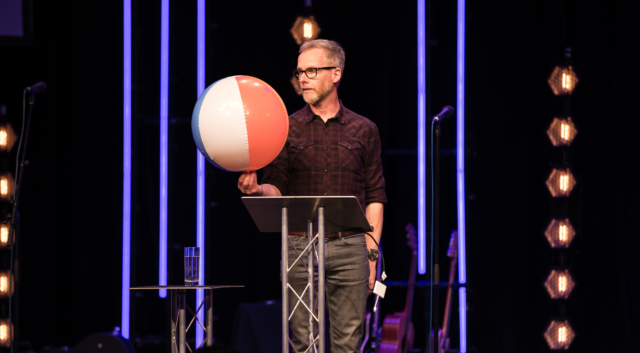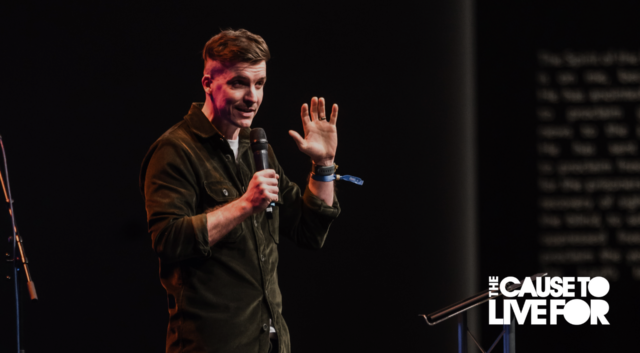Leadership Reflections 001
Over the last few years we have all heard and processed news of leaders who have fallen short of the high standards that are laid out in the Bible. For many of us these instances have been upsetting, painful and heartbreaking. We share those feelings of pain at the abuse, ill treatment and hurt that has been experienced around the Church.
It’s caused Debby and me to reflect again, with some of our team, on the leadership lessons we can learn in this moment; lessons for our own churches and those across the wider Vineyard family here in the UK and Ireland.
This series of Leadership Reflections contains some teaching and lessons which we have shared with Vineyard Senior Pastors over the last few years. As we continue to listen and learn from this season, we wanted to open these resources up to anyone who would find them helpful by publishing them publicly.
Our prayer is that you might find these helpful and by the grace of God, together we can create churches that are safe, Kingdom-centred communities for us all to call home.
John & Debby Wright
National Directors
Vineyard Churches UK & Ireland
____________________________
In the Vineyard, we passionately want to be Spirit-led, obediently listening to his voice and direction. When it is a big decision which is going to affect a lot of other people, the model we consistently see in the New Testament, however, is that discernment happens within a community of believers.
One example of this is the council of Jerusalem in Acts 15. Gentiles were coming to faith and the question of whether those Gentiles should effectively become Jews needed to be answered. The resolution of this crisis created a statement for the Church which was described as what “seemed good to the Holy Spirit and to us”. Not “seemed good to me”, but plural, us, involving many others. Hearing the Lord’s leading, on things which affected others, was done in community.
We love that God speaks today. We love that as individuals we can sense the Lord’s leading. But we need to also recognise that our initial sense of what God is saying (even with some prophetic words which seem to confirm it) can just be the start of his conversation with us.
Our initial sense of what God is saying can just be the start of his conversation with us.
In 1 Corinthians 14 Paul says, (when people give prophecies) that when someone says “I believe the Lord is saying this”, others should weigh carefully what is said. In his letter to the Thessalonians he says we should test every prophetic word and hold onto what is good. The clear implication is that not everything that people believe to be the Lord speaking actually is. Or, even if the Lord is speaking, we need others to help us discern how that leading is interpreted and applied. How it is worked out in practice.
We can weigh prophecies against what we know to be biblical and what is in line with Jesus’ character. And we can be confident in being transparent and accountable with what we sense the Lord is saying, because when God is speaking, what he is saying will always stand up to scrutiny.
When God is speaking, what he is saying will always stand up to scrutiny.
Prophetic and wisdom
In 1987 Debby and I moved back to the UK from our time training as interns at the Anaheim Vineyard, with a clear sense of the Lord calling us to plant a Vineyard at some point. We saw so many other people fly the nest and plant churches while we remained (feeling called to stay and serve John and Eleanor Mumford) in South West London Vineyard.
When it was God’s timing for us to plant, it was confirmed in so many ways. Both prophetically and with the experience and wisdom of key people, including our leaders John and Eleanor Mumford. So much so that if we wanted to be obedient to the Lord we simply had to go.
Over the 27 years of Trent Vineyard’s journey, at every key juncture, major developments have involved the Lord speaking prophetically and others resonating with it. We have never acted on simply ‘believing the Lord has spoken’, without first having clear confirmation involving others (normally both inside and outside of the church). The bigger the decision and implications of a direction of travel, the clearer the confirmation. The whole process of transitioning the leadership of Trent to John Bodily recently followed a similar pattern of discernment.
What you are doing is not good
One question we would all do well to consider personally is this:
Do we have a willingness to engage with others, including those who express questions or caution?
Let me ask you, if someone said to you “what you are doing is not good” as Jethro did to Moses in Exodus 18, how would you respond? Moses was clearly a man who was attentive to the Lord’s leading so this may have sounded a bit insulting. But the truth is Moses was open to input, and adjusted his course of action. That was a real demonstration of humility, and the resulting action was a great thing for both him and the people he led.
The leadership structure needed some development because the people were so dependent on Moses. He was exhausted, and the people were frustrated. That’s just one take away from this story. But look what else God affirms through this story: that listening to input from others when seeking God’s will is a good thing.
Listening to input from others when seeking God’s will is a good thing.
Healthy decision making
When the Vineyard movement started, John Wimber drew on his observations of many years as a church growth consultant. He observed that when so much decision-making power was located in a board it often prevented the Pastor from having any freedom to lead. He didn’t want to replicate that.
The Vineyard model sought to combine the best of the congregational and board model (as seen in Baptist churches) and the episcopal oversight model (as seen in the Anglican Church.) In the Vineyard, with appropriately empowered boards of trustees in the local church and Area and Regional Leaders involved at significant moments, it has served us well, thus far.
The problem potentially comes when the dynamic tension between those two models is lost; for example, when a Pastor enjoys the freedom to lead within their own church, but doesn’t respond well to their board of trustees or the authority of oversight in the movement.
We want trustee boards to feel empowered to hold their Pastors accountable, not to micromanage, but to have the freedom to robustly challenge decisions they are concerned about. And when those in oversight of the Pastor within the movement feel the need to engage, that the Pastor would also be responsive to their input.
Healthy Governance
A helpful description of our governance is to picture a three-legged stool which bears the weight of the church.
The first leg is the spiritual leadership of the church, which is invested in the Senior Pastors by VCUKI. The Senior Pastors raise up leaders and staff teams and, in turn, delegate authority to their local leaders.
The second leg represents the church Trustees, who bear the weight of governance, reputational risk, legal and financial compliance, HR and safeguarding. They are the employer of the Senior Pastors and any staff, and receive ongoing training and support from VCUKI.
The third leg is Vineyard Churches UK and Ireland who licence the Senior Pastors to lead a Vineyard church and, along with the local Trustees, hold them accountable. Licenced Senior Pastors recognise the spiritual leadership and authority which those in oversight within the movement carry. VCUKI provides support, training, community, resourcing and encouragement, and they sometimes become involved in challenging situations in order to help Pastors, staff teams, and Trustees lead the church healthily.
This stool helps illustrate our governance structure and the stability and health which results. A church is most healthy when each of the three groups play their part and work together.
Freedom within constraint
To respectfully engage with others through taking counsel and submitting to those in oversight of us doesn’t diminish our leadership, it enhances it. As Pastors, we would do well to see the enormous value of freedom within constraint. It keeps both us and our churches safer and goes a long way towards protecting us from decisions and actions which could have a significant negative impact.
A few Senior Pastors – including those who have previously led independent churches – have told us recently that there is reassurance and a greater sense of safety in leading a church which is part of a movement, with a clear oversight and accountability structure. Their people report that sense of security, knowing that there are layers of accountability in place.









